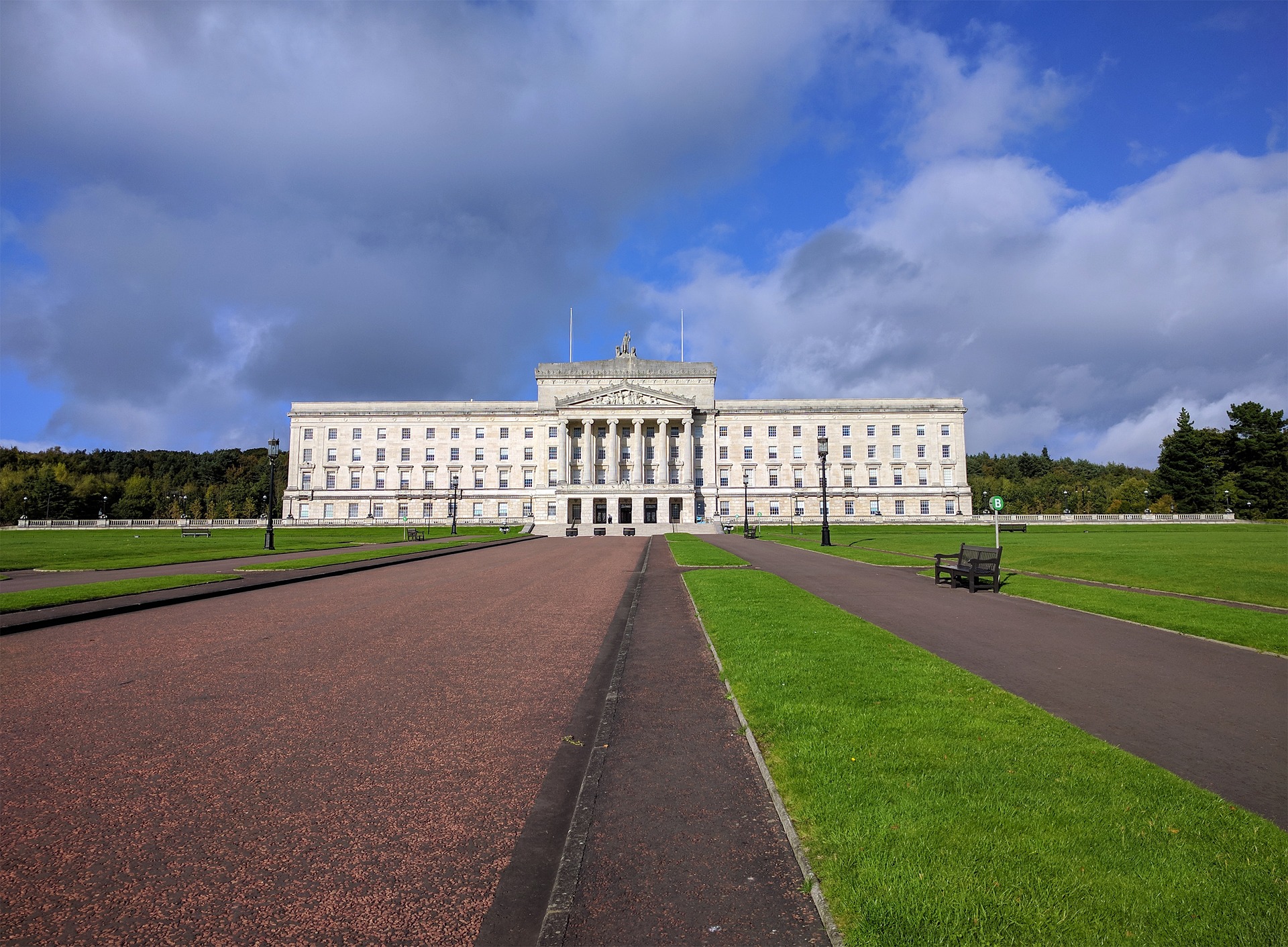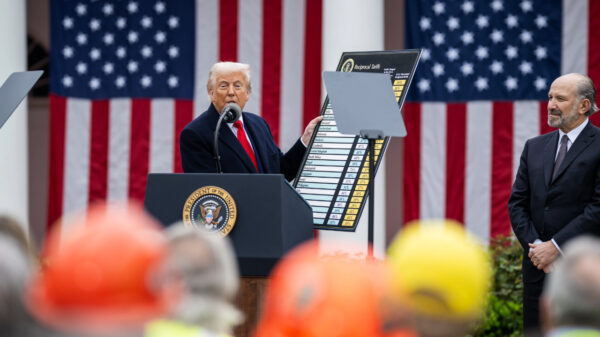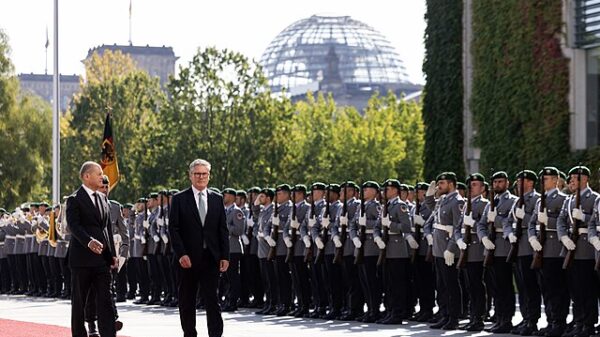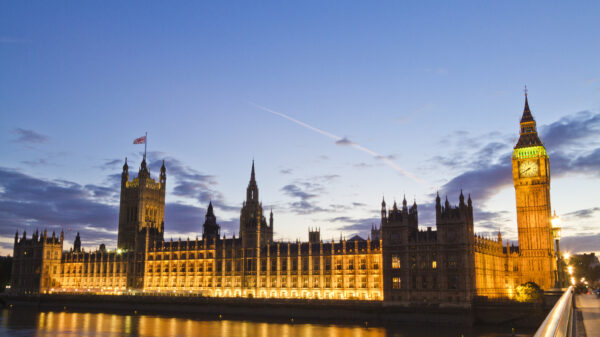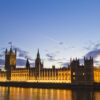Roar writer Elektra Favre on why the DUP are refusing to enter government at Stormont in Northern Ireland and the impact this is having.
When Taoiseach (Irish Prime Minister) Micheál Martin visited Northern Ireland in an effort to get the Democratic Unionist Party (DUP) to stop their deadlock on government formation, he said, “We can’t have a situation where one political party determines that the other political parties can’t convene in a parliamentâ€. The unionist party has refused to return to the Stormont power-sharing assembly which, under the Good Friday Agreement, is unable to operate without both of the largest parties, in this case Sinn Féin and the DUP, agreeing to work together. The DUP’s decision to boycott Stormont creates mounting pressure on the issue of the Northern Ireland Protocol. The Protocol has been a controversial and contentious part of Brexit negotiations. It establishes a new trade border on the Irish Sea, in line with Brexit laws, and draws a line between the whole island of Ireland and the rest of the UK. The latter of which the DUP have an issue with. They argue that this Irish Sea Border creates “an existential threat” to Northern Ireland’s place in the UK, and with a newly elected nationalist Sinn Féin majority, the DUP is anxious to have the NI Protocol scrapped.
Irish borders have been a sensitive issue for a long time, Northern Ireland’s colonial past and history with the Troubles and civil war make talking about any kind of border between the two parts of the island very tense. Brexit negotiators have therefore always been reticent to upset the status quo and plans for a hard border have never been on the table. However, Britain leaving the EU and its Single Market, meant there was a need for some kind of trade border, whether that be between the North and the Republic of Ireland, or on the Irish Sea between Ireland and the rest of the UK.
The solution to the border issue was “solved” in Boris Johnson’s “oven-ready” Brexit in the shape of the Northern Ireland Protocol. The Protocol allows goods to travel from Northern Ireland (in the UK) to the Republic of Ireland (in the EU) without having to go through checkpoints. Instead, it’s only when goods arrive in Northern Ireland from the rest of the UK that they are checked against EU trade rules.
In an opinion piece for The Guardian, Ireland’s current Tánaiste (Deputy PM) Leo Varadkar, who was Taoiseach (PM) during the Brexit negotiations, explained that “The protocol is working. There is no hard border between Ireland’s north and south. The EU single market is protected, as is the Republic of Ireland’s place in it. Northern Ireland is outperforming the rest of the UK economically, and north-south trade on the island of Ireland has increased.†However the DUP, one of Northern Ireland’s Unionist parties, is unhappy with the Protocol, citing its drawing of a line between Northern Ireland and the rest of the UK as the main issue. In the wake of a recent Sinn Féin win, and talks of a Northern Ireland border poll in the next five to ten years, the DUP are frantically trying to maintain as strong a connection to the UK as they can.
In an effort to force a scrapping of the Protocol, the DUP have refused to take their place in Stormont since the election on the 5th May. Under the cross-community framework of the Good Friday Agreement, which outlines the requirements for the power-sharing system of the Assembly, both majority parties (in this case Sinn Féin and the DUP) need to be present in order for the government to function. The DUP’s refusal to work with Sinn Féin has meant assembly members have been unable to elect a Speaker and thus unable to sit in Stormont. Northern Ireland has not had an operational Assembly for over two weeks.Â
In response, Boris Johnson and his Foreign Secretary Liz Truss have cited Article 16 of the Protocol as justification for their planned decision to act unilaterally to make changes to the trade agreement. Article 16 ensures that safeguard measures can be taken in case the Protocol causes serious “economic, societal or environmental difficulties” in Northern Ireland. In this case, the country’s absence of a fully operational government for over 15 days and the societal and economic implications of that deadlock are likely significant enough reasons to invoke Article 16. However, not everyone views things this way.
Leo Varadkar, previously Ireland’s prime minister during Brexit negotiations, argues “The protocol can be improved and modified…But negotiating with a partner that is willing to break agreements and change its mind on what it wants is not easy. The EU’s flexibility and good faith have not been reciprocated by the UK government. This is breeding mistrust in EU capitals.â€
The EU seems to agree as on Thursday the EU ambassador to the UK João Vale de Almeida rejected Liz Truss’ request to rewrite the Protocol and warned that “Unilateral calls for unilateral; action calls for actionâ€, promising a retaliation if the UK government passes a law reversing any parts of the agreement: “We can’t renegotiate the protocol: the ink on the signatures is hardly dryâ€.
Many fear this disagreement might lead to a trade war which, in light of the current cost-of-living crisis in Northern Ireland and the UK, is the last thing people want. Colum Eastwood, leader of the SDLP (Social and Democratic Labour Party), reminded everyone that “People have real priorities out there. The cost of living crisis is crippling families all across the north – we know the number of people who are on health waiting lists – and Jeffrey Donaldson is playing a political game about an issue he can’t resolve.” And leader of the majority-winning Sinn Féin Michelle O’Neill agreed that the DUP was “holding up progress” and “punishing the public” as “workers and families are facing really hard times because of the cost-of-living crisis and that demands our immediate action, not protest.”
It’s necessary to note that the only party asking for a complete scrapping of the NI Protocol is the DUP. The rest of Stormont, Unionist and Republican parties alike, while admitting the agreement needs some changes, are still willing to move forward with it.
Most importantly, the Northern Ireland Protocol is a product of Brexit which Northern Ireland did not vote for, and the DUP’s refusal to accept the Protocol is somewhat ironic considering it is a result of the “hard Brexit” they so vigorously pushed for. The political situation is understandably tense in Northern Ireland, with many feeling they have been caught in the crossfire of an exit out of the EU they did not ask for. The wind has also been taken out of the sails of Sinn Féin’s historic win as a result of the DUP’s refusal to enter government. Mary Lou McDonald, leader of the Sinn Féin party in Ireland, in a Sky News interview on Thursday appealed to “Let people in the North of Ireland get on with it, have government and make progress that we are entitled to anticipate in our society”, noting that “I’ve said all along, we can’t be the collateral damage of Britain’s Brexit.â€Â

